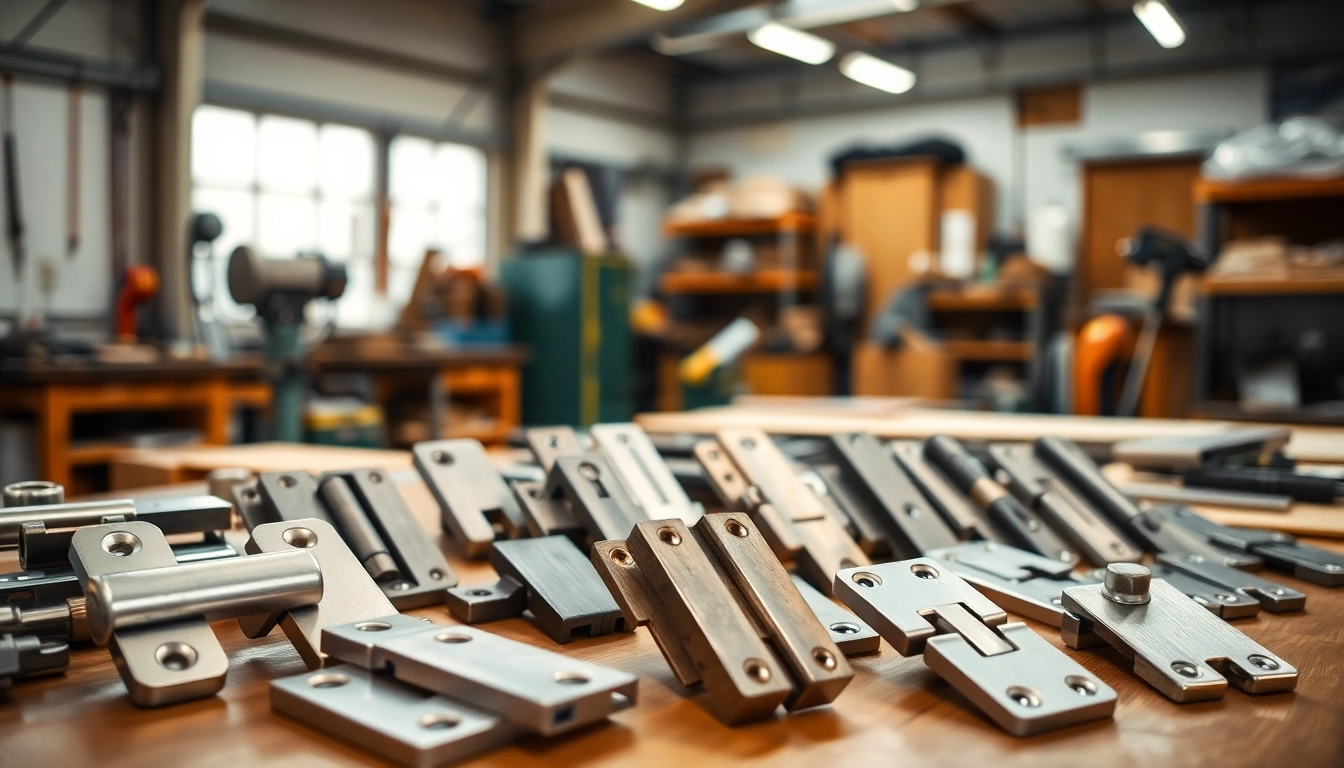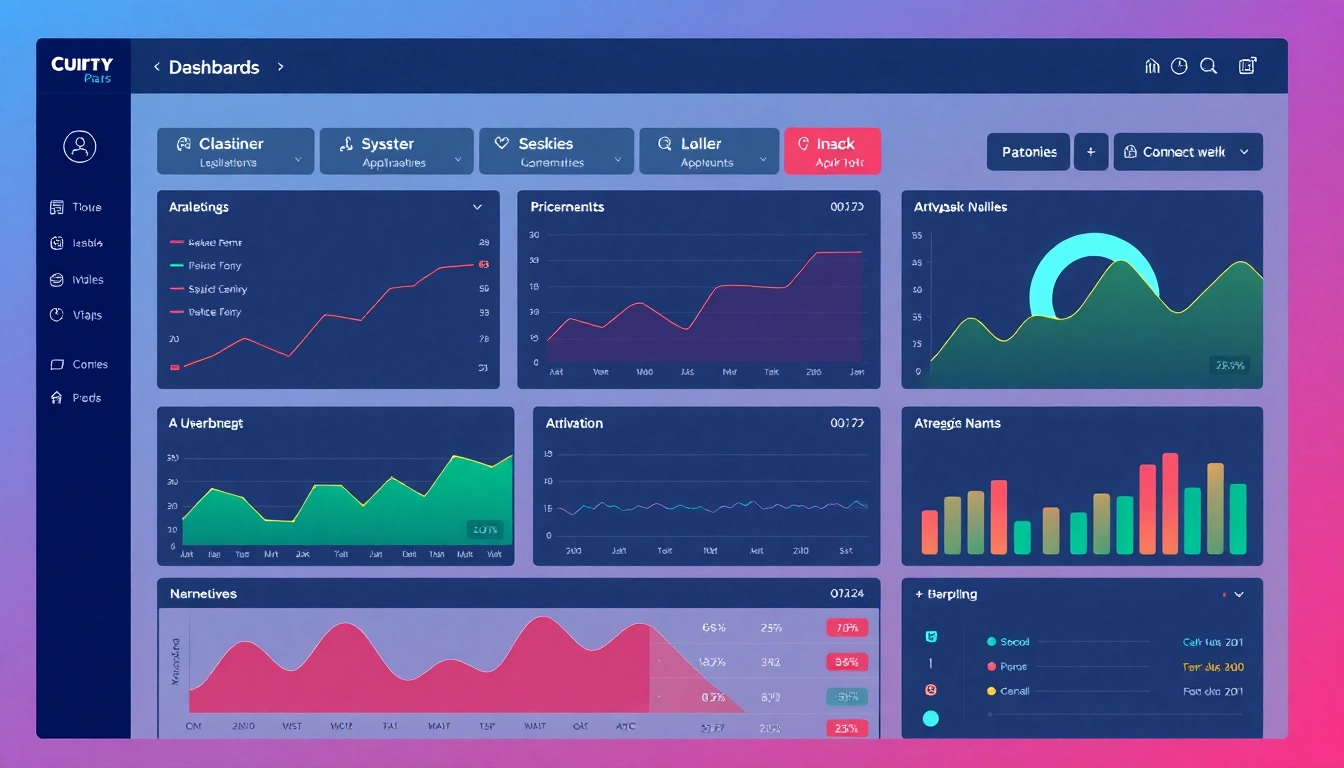Understanding Hinge Types and Applications
Hinges play a crucial role in the functionality of doors, cabinets, gates, and various other applications across multiple industries. Whether for residential use or heavy industrial applications, understanding the different types of hinges available and their specific applications is essential when selecting the right Hinge Supplier. This knowledge not only ensures that the correct hinge type is used but also affects door appeal, durability, and functionality.
Common Types of Hinges
There are many different types of hinges, each designed to fulfill specific needs. Here’s an overview of the most common kinds:
- Butt Hinges: One of the most common hinge types, butt hinges are used on doors. They consist of two plates (commonly known as leaves) that meet at a central pin.
- Continuous Hinges: Also known as piano hinges, these run the full length of the door or panel. They provide even weight distribution and greater stability.
- Spring Hinges: Designed with an internal spring, these hinges automatically close doors, providing convenience in various applications.
- Pivotal Hinges: Characterized by their pivot point, these hinges are often used in larger gate systems and applications where a traditional hinge would not suffice.
- Concealed Hinges: These are hidden from view when the door is closed, providing a sleek and modern look, commonly used in cabinets.
Factors to Consider When Choosing Hinges
Choosing the right hinge doesn’t only depend on its type; several factors should be considered:
- Material: Hinges can be made from various materials, such as stainless steel, brass, bronze, or plastic. The material choice should consider environmental factors like moisture and corrosion potential.
- Weight Capacity: It’s vital to assess the weight the hinge will need to support. Heavy doors need sturdy hinges that can handle the load effectively.
- Functionality: Will the hinge need to allow for full rotation, or do you want it to automatically close? The hinge type will impact its effectiveness for various functionalities.
- Finish: The aesthetic of hinges can enhance or detract from the overall design. Choosing finishes that align with the surrounding decor is essential.
Applications for Different Hinge Styles
The application of hinges varies greatly. Here are some examples:
- Residential Doors: Typically use butt hinges for their simple yet effective design.
- Commercial Access Control: Often utilize heavy-duty continuous hinges to ensure durability against frequent use.
- Cabinetry: Commonly employ concealed hinges for a streamlined appearance without visible hardware.
- Gates: Frequently use pivotal hinges to facilitate movement and functionality in large, heavy structures.
Benefits of Sourcing from a Reliable Hinge Supplier
Choosing the right supplier can significantly affect project outcomes. Reliability and quality assurance lead to predictable, beneficial results. Here are the benefits of sourcing hinges from a trusted supplier:
Quality Assurance and Product Consistency
Specialty hinge suppliers ensure each product adheres to strict quality protocols. This leads to:
- Durability: High-quality materials result in longer-lasting hinges.
- Consistency: Sourcing from a reliable supplier guarantees uniformity in products, which is vital for aesthetics and functionality.
Cost Efficiency and Bulk Purchasing
Working with a reputable hinge supplier often allows businesses to negotiate bulk pricing. This can lead to:
- Lower Costs: Reduced prices per unit can lead to significant savings for companies managing large orders.
- Better Inventory Management: Supplier relationships often allow access to inventory management insights, ensuring timely availability of needed products.
Timely and Reliable Delivery Services
Expecting timely delivery of components is crucial in any operation. A reliable hinge supplier will offer:
- Dependable Deadlines: Commitment to delivering on time minimizes project delays.
- Logistical Support: Many suppliers provide a dedicated logistics team to assist with shipment tracking, thus increasing operational efficiency.
How to Evaluate Your Hinge Supplier
When selecting a hinge supplier, conducting due diligence is necessary. Here are ways to evaluate potential candidates:
Key Qualities to Look For
Competence and reliability are paramount in a hinge supplier. Here’s what to assess:
- Experience: Long-standing businesses often possess industry knowledge and expertise.
- Product Range: Evaluate whether they offer a broad selection of hinges to meet diverse needs.
- Customer Service: Good suppliers provide timely responses and support services for their products.
Certifications and Standards Compliance
Quality assurance certifications signify adherence to industry standards, which can include:
- ISO Certification: Indicates that the supplier meets International Organization for Standardization guidelines.
- ANSI Compliance: American National Standards Institute standards ensure the hinges are tested for performance and safety.
Customer Reviews and Testimonials
Engagement with current or past customers can provide insights into the supplier’s reliability. Look for:
- Online Reviews: Platforms like Google Reviews or Trustpilot can indicate general customer sentiment.
- Word of Mouth: Testimonials can highlight positive experiences or raise red flags about service shortcomings.
Top Hinge Suppliers in the Industry
Choosing among various hinge suppliers is easier with comparative insights. Here’s a look at notable players:
Comparative Insight on Competitor Offerings
When analyzing hinge suppliers like Hinge Outlet, Hardware Source, and others, consider their product offerings:
- Hinge Outlet: Offers a diverse array of spring hinges and specialized product lines.
- Hardware Source: Known for their wide variety of materials and finishes in hinge manufacturing.
- PBB: A one-stop-shop for all hinge needs, specializing in large orders.
Regional Leaders vs. Global Suppliers
Regional suppliers often provide personalized service and local expertise, while global suppliers may benefit from economies of scale:
- Regional Suppliers: Typically offer customization options and niche expertise.
- Global Suppliers: Can provide lower pricing due to bulk manufacturing processes but may lack local support.
Emerging Suppliers to Watch
Monitoring new entrants can yield innovative solutions and competitive pricing:
- Start-Up Innovations: New companies often introduce unique designs and materials that may enhance functionality or aesthetic appeal.
- Technological Advancements: Suppliers focusing on smart technologies in hinge design might pave the way for new applications.
Future Trends in the Hinge Supply Market
The hinge supply market evolves along with advancements in technology and changing consumer preferences. Here’s what to look for:
Technological Innovations in Hinge Design
The integration of technology within hinge design is on the rise. This includes:
- Smart Hinges: Enabled with sensors or controls for enhanced security and convenience.
- 3D Printing: Customization and rapid prototyping opportunities increase, allowing for bespoke hinge designs.
Sustainability Practices Among Hinge Manufacturers
Environmental concerns are pushing manufacturers to adopt sustainable practices. This involves:
- Recyclable Materials: Using biodegradable or easily recyclable materials for production.
- Eco-friendly Manufacturing Processes: Implementing energy-efficient practices to reduce their carbon footprints.
Market Predictions for Future Demand
Forecasts suggest the demand for hinges will continue to grow, propelled by construction and renovation projects. Factors influencing demand include:
- Residential Construction: Increasing home building projects will drive the need for high-quality door and cabinetry hinges.
- Commercial Facilities: Expanding warehouse and manufacturing facilities will continue to require heavy-duty hinges.



